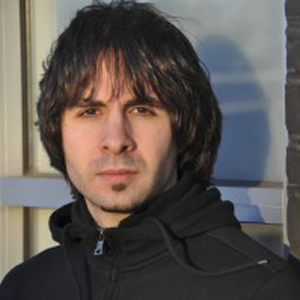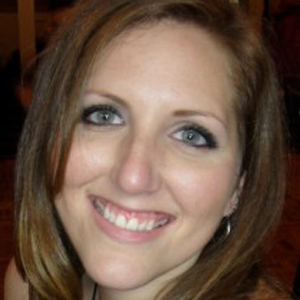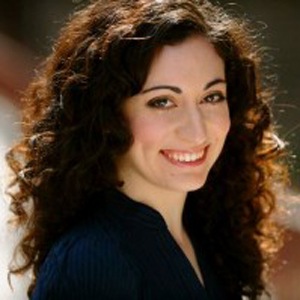After Graduation

Music. Once it’s in your blood, it’s hard to let go of it. Graduates from Lafayette’s Music Department embody this ideal. Many opt to share their love of it, instructing others as teachers and performing in ensembles and small trios, and as soloists. Others perform in bands for fun on the side as a serious, dedicated hobby.
Many students take what they’ve learned a step further, immersing themselves in studying performance, theory, composition, or music history, at the graduate level at places such as Rutgers University, William Patterson University, and the Aaron Copland School of Music at Queens College (CUNY). The program makes it easy to add another major, such as history, psychology, engineering, neuroscience, philosophy or mathematics. Many former students capitalize on that and pursue truly unique paths, such as a master’s in performance psychology at the University of Scotland-Edinburgh or a master’s in public health at Thomas Jefferson University.
 By day, Joe Benoit ’04 teaches math in New York City. By night and on the weekends, he plays with his band Joe Benoit & the Regulars. His two undergraduate degrees—music and psychology—provide him with the ability to teach, understand, and work with others. “As a public school teacher, I find myself counseling my students and giving them advice about as often as I am educating them about math or music.”
By day, Joe Benoit ’04 teaches math in New York City. By night and on the weekends, he plays with his band Joe Benoit & the Regulars. His two undergraduate degrees—music and psychology—provide him with the ability to teach, understand, and work with others. “As a public school teacher, I find myself counseling my students and giving them advice about as often as I am educating them about math or music.”
Benoit touts Lafayette’s small department as an asset; it makes it easy to get to know people. “The professors with whom I spent my time were incredibly knowledgeable. They enriched my life as a player, a performer, and a songwriter,” he says. Music is nothing if not collaborative, and he encourages students to seek each other out to play together. “Some of the best learning experiences occur while playing with others, whether that’s in a band, choir, ensemble, or a cappella group. I was a part of many such student groups while on campus—The Chorduroys, guitar ensemble, and my own rock band, just to name a few.”
 The path that led Jessica Lenza ’05 to where she is now—studying to become a rabbi at Leo Baeck College in London—couldn’t have started any other way if it weren’t for Lafayette. As a double major in music and religious studies, Lenza didn’t have to sacrifice anything to pursue her passions.
The path that led Jessica Lenza ’05 to where she is now—studying to become a rabbi at Leo Baeck College in London—couldn’t have started any other way if it weren’t for Lafayette. As a double major in music and religious studies, Lenza didn’t have to sacrifice anything to pursue her passions.
“I got to focus on the things I wanted to focus on,” she says. “I got personal attention I never would have received in a bigger program. At other schools, you can only major in music if you devote your entire college experience to it, but at Lafayette I was able to dedicate myself seriously to music and theater and religious studies and a cappella music and Hillel and a social life. I think that’s the biggest asset of the program.”
Her life after graduation took her to Jerusalem, New York, and London. Lenza says her experience gave her the skills that are essential, especially when it comes to collaborating. “I’m not writing four-part harmony that avoids parallels fifths, but I am constantly calling on my music theory background to transpose songs on the spot or create new arrangements.”
 Every day, Jacqueline Macri ’09 uses her music and psychology double major to teach voice to students of all ages—from small children through adults at the Meridee Winters School of Music in Ardmore, Pa. “The curriculum encourages individual spins on traditional (and non-traditional) songs, uses dice games for practicing, and encourages songwriting to help the student absorb and integrate new concepts.”
Every day, Jacqueline Macri ’09 uses her music and psychology double major to teach voice to students of all ages—from small children through adults at the Meridee Winters School of Music in Ardmore, Pa. “The curriculum encourages individual spins on traditional (and non-traditional) songs, uses dice games for practicing, and encourages songwriting to help the student absorb and integrate new concepts.”
Macri has found her music education quite valuable. “I, of course, would not have a hope in this job without having been immersed in music theory at Lafayette. Well, I’d have a hope, but I’d be much less helpful and much more frustrated! Initially, I had so over-learned skills like sight singing and theory that I felt challenged by my task to break them down for the beginners, which I think is a tribute to the department’s thoroughness.” She still uses her theory books and music dictionaries as a reference for her current work.
In addition to the stellar instruction, Macri applauds the rapport that professors create with students. “I found the professors ever helpful and interested in their students. They will do everything they can to help you create a unique path for yourself, whether you are designing a major or a final project.”